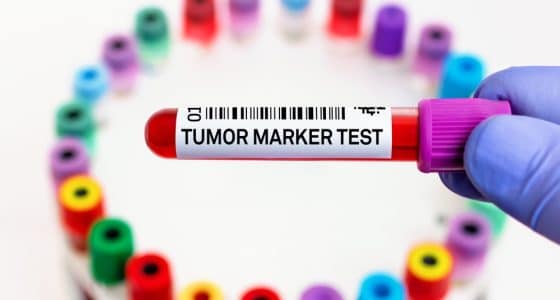Medical researchers are relentlessly searching for answers to the puzzle of malignant mesothelioma, the rare and deadly asbestos-related disease that has proven so resistant to traditional cancer treatments. A recent discovery by researchers in Germany has provided an important piece of the puzzle: The scientists have identified a biomarker that is both more accurate than what has previously been used, and which is also an accurate prognostic tool.

Researchers Point to the Importance of KL-6 in Mesothelioma
Because malignant mesothelioma has such a long latency period before its symptoms appear, early diagnosis is a challenge. Researchers from the Department of Thoracic Surgery of the West German Cancer Center, University Duisburg-Essen in Essen, Germany noted that Krebs von den Lungen-6 (KL-6) is a glycoprotein shed by a protein called Mucin 1 (MUC1). MUC1 is overexpressed in many human epithelial cells and sheds KL-6.
Knowing that KL-6 was elevated in lung cancer patients and those with other cancers, the group set out to see whether it was also present in high levels in patients diagnosed with malignant pleural mesothelioma and whether it was an effective diagnostic or prognostic tool. They collected pleural effusion samples from 87 patients to measure both KL-6 levels and levels of soluble mesothelin-related protein (SMRP), the biomarker traditionally used for diagnosing and monitoring patients with mesothelioma.
Analysis Reveals KL-6 Superiority Over SMRP in Diagnosing and Assessing Mesothelioma
Writing in the journal Lung Cancer, the researchers found that patients with pleural mesothelioma had significantly higher pleural effusion KL-6 levels and that this was particularly true for patients diagnosed with the epithelioid type of mesothelioma. They then checked to see whether KL-6 levels corresponded to patient outcomes and found that higher levels were independently associated with improved overall survival. This was also true for patients with elevated KL-6 levels in their blood serum.
Importantly, the group compared the KL-6 levels in their patient group to the levels of SMRP, which has previously been the most investigated and relied-upon biomarker for malignant mesothelioma. they found that though SMRP levels were also elevated in mesothelioma patients, only epithelioid tumors were significantly associated with higher levels of SMRP, with no elevation in those with biphasic or sarcomatoid compared to control groups, while KL-6 was elevated in all groups. The group also found that KL-6 levels in pleural effusions had a stronger diagnostic and prognostic value than levels found in blood serum.
Group Concludes that KL-6 Demands Further Investigation
In their conclusion, the mesothelioma researchers point to the potential for KL-6 in advancing patient care. They write, “Our study strongly emphasizes the advantages of KL-6/MUC1 as a novel liquid-based biomarker in pleural mesothelioma, and it supports the concept of investigating KL-6/MUC1-targeted immunotherapy in pleural mesothelioma future clinical trials.”
If you or someone you love has been diagnosed with malignant pleural mesothelioma or has a history of asbestos exposure, the results of this study can make a real difference in your journey. For information on accessing more information, contact the Patient Advocates at Mesothelioma.net today at 1-800-692-8608.
